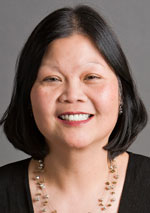In May, two notable reports on global warming were released; one was released by the White House and the other by the Vatican. Developed by 300 scientists over four years, the National Climate Assessment focused on “actionable science.” It provided sobering statistics and projected effects on each state in the union.
For example, the 10 warmest years on record all took place after the 1980s, the report said. In 2012, one-third of the U.S. population experienced temperatures over 100 degrees for more than 10 days. The damage from drought, wildfires, floods and super storms that year cost $110 billion.
The problems are not only in our atmosphere but also at the core of the earth, which is sending us angry messages, including earthquakes that have produced catastrophic tsunamis.
[hotblock]
The Vatican pontifical academies of science and social science recently hosted a summit called “Sustainable Humanity, Sustainable Nature: Our Responsibility.” Comprising physical, environmental and social scientists as well as theologians, the summit addressed the limits and pathways that allow humanity (rich and poor) and the earth to flourish.
The focus was not only on the environment but also on the subsequent burdens and injustices imposed on the poorest people. Honduran Cardinal Oscar Rodriguez Maradiaga said some of our greatest concerns are not about whether we can address the issues but whether we have the heart to do so. “Nowadays, man finds himself to be a technical giant and an ethical child,” he said.
Our will is indeed the crux of our collective challenge. While we can hold back further deterioration, will we accept our responsibility to do our part? These days, skepticism is cast on whether human actions are really the drivers of climate change, and even if they are, what is the point of one country acting when others hold out? Thus there is no need to do our part.
In April, a Gallup poll released data about how Americans answered the question: “How much do you personally worry about global warming?” Of those polled, 19 percent said they worried “only a little” and 24 percent “not at all.” Is this the manifestation of the “globalization of indifference” on which Pope Francis called us to accountability?
At the summit, 96-year-old pre-eminent oceanographer Walter Munk concluded that a solution to this and other environmental problems “requires a miracle of love and unselfishness.”
Let us keep in mind our earth, our gratitude for it, our care of it and ultimately our stewardship for future generations as we pray to the Holy Spirit.
***
Woo is president and CEO of Catholic Relief Services.
PREVIOUS: Young people inspire by example and word, if we listen
NEXT: Too few voters are showing up on Election Day




How much would the earth have to cool for poverty to be eradicated?